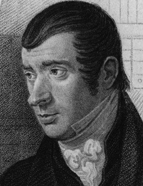

It is well known that during the constitutional experiment of 1820-23, the concepts of true freedoms and guarantees , advocated in an unwritten constitution sworn in at the mythical Cortes de Lamego and recovered with the Sovereign Congress of the Vintismo , attracted various political factions, both conservative and revolutionary, in Portuguese society (many of them politically active in later historical periods). So much so that the mythology of a proto-constitutional pactualism, supposedly already existing in both the Lusitanians and the Portuguese of the time of D. Afonso Henriques, is central to the ideology of some liberals and counter-revolutionaries: several of their leading figures coexisted as Vintist members of parliament , all feeling the need to mould such historical-legal truths into a single fundamental text in the form of a constitution or granted charter. These were the cases of José Ribeiro Saraiva, José Acúrsio das Neves (future Miguelists ), Abbot Correia da Serra and João Pedro Ribeiro, for example – as well as José Liberato Freire de Carvalho (see the parliamentary career of this quintet summarised in Zília Osório de Castro (dir. ) , Dicionário do Vintismo e do primeiro Cartismo …[Dictionary of Vintism, and first Chartism] , 2002, vols. I, pp. 418-24 and II, pp. 308-13, 522-26, 597-99 and 626-34).
Later, on 2 May 1828, the Duke of Cadaval and the Viscount of Santarém, respectively D. Miguel ’ s Assistant Secretaries of State for Dispatch and Foreign Affairs, strenuously argued at a meeting of State Councillors for the need to hold traditional courts to legitimise D. Miguel ’ s monarchy. This was also the concern of some of the speakers at the so-called Lisbon courts, such as the Bishop of Viseu (Francisco Alexandre Lobo) and Acúrsio das Neves, members of the Academia das Ciências de Lisboa. Like the Vintists and Chartists , some Miguelist figures were also concerned with providing a historical and legal basis for a pactualism that would justify the free choice of D. Miguel as D. João VI ’ s successor, invoking the contractual mythology of the Cortes de Lamego in this regard (see Sérgio Campos Matos, op. cit ., pp. 267 (and nos. 318 and 320) and 277 , and Daniel Estudante Protásio, O 2 . º Visconde de Santarém – Pensamento Histórico e Acção Política … [The second Viscount of Santarém- Historical thought and Political Action] , 2008, pp. 148-159 and 188-193).
This work is financed by national funds through FCT - Foundation for Science and Technology, I.P, in the scope of the projects UIDB/04311/2020 and UIDP/04311/2020.
